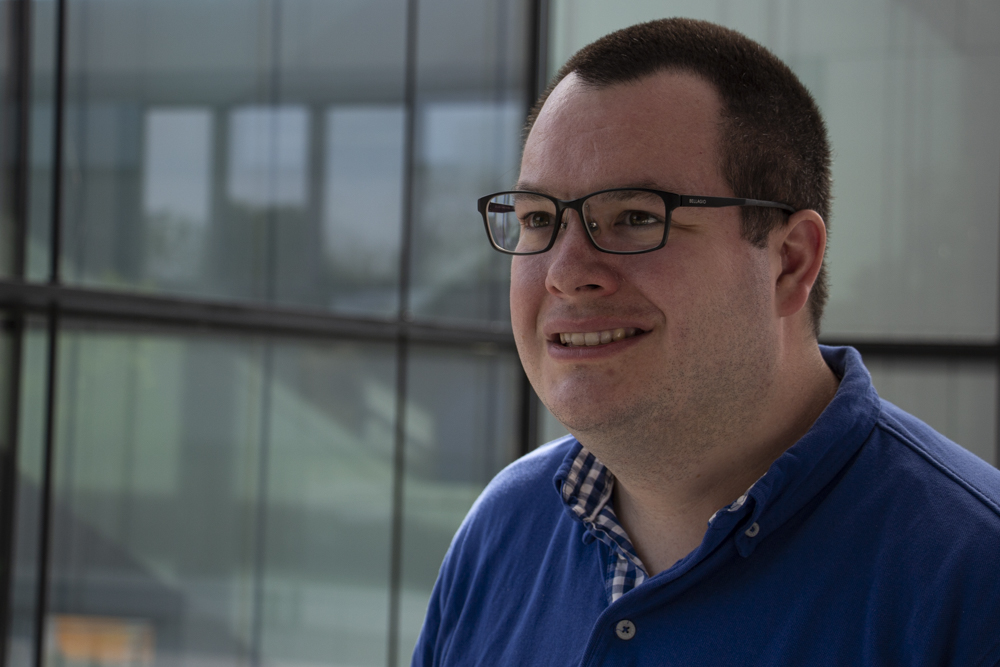
Prof. Dr. Patrick Glauner
KI-Gesamtpaket:
- Methodik und Technologie
- Kommerzialisierung
- Rechtliche, wirtschaftliche und politische Fragestellungen
Professor
Praktikumsbeauftragter der Bachelorstudiengänge Artificial Intelligence und Künstliche Intelligenz
Sprechzeiten
- Sommersemester 2026: Dienstags von 13 bis 14 Uhr.
Während der Vorlesungszeit. Bitte zuvor per E-Mail Kontakt aufnehmen.
Kernkompetenzen
- KI und Maschinelles Lernen
- Big Data, Bildverstehen und Sprachverarbeitung
- Kommerzialisierung von KI und Innovationsmanagement
- Rechtliche, wirtschaftliche und politische Fragestellungen
- Quantencomputing
- Branchenkenntnisse: Automobil, Bau, Beratung, Bildung, Energie, Finanzen, Gesundheitswesen, Halbleiter, IT, Landwirtschaft, Logistik, Management, Maschinenbau, Materialwissenschaften, Nachrichtendienste, Polizei, Stromversorgung, Verkehr, Verteidigung, Versicherungen und weitere
Mehr Informationen: www.glauner.info
Forschungs- und Lehrgebiete
Kurse:
- Algorithmen und Datenstrukturen
- Bildverstehen
- KI-Innovationsmanagement
- KI-Projekt
- Quantencomputing
Ehemalige Kurse:
- Big Data
- Big Data, Technologiecampus Cham
- Industrie 4.0
- Programmierung 2
- Sprachverarbeitung
Mehr Informationen: www.glauner.info/teaching
Vita
Besondere Erfolge:
- Beratung des Europäischen Parlaments, der Parlamente von Deutschland, Frankreich und Luxemburg und der Interparlamentarischen Union als Sachverständiger
- Sprecher bei renommierten Veranstaltungen wie dem Jahrestreffen des International Finance Forum und dem AI House Davos
- Führung durch das CDO Magazine in der Liste der weltweit führenden Professoren im Datenbereich im Jahr 2022
- Veranstaltung des CERN Spring Campus 2024 an der TH Deggendorf
Positionen:
- Seit 2020: Professor für Künstliche Intelligenz, TH Deggendorf
- 2019 - 2020: Head of Data Academy, Alexander Thamm GmbH
- 2018 - 2019: Innovationsmanager für Künstliche Intelligenz, Krones AG
- 2018: Gastforscher, Université du Québec à Montréal (UQAM)
- 2015 - 2018: Doktorand, Universität Luxemburg
- 2012 - 2014: Fellow, Europäische Organisation für Kernforschung (CERN)
Abschlüsse:
- 2019: Promotion in Informatik, Universität Luxemburg
- 2018: MBA, Quantic School of Business and Technology
- 2015: MSc in Machine Learning, Imperial College London
- 2012: BSc in Informatik, Hochschule Karlsruhe
Stipendium:
- Studienstiftung des deutschen Volkes